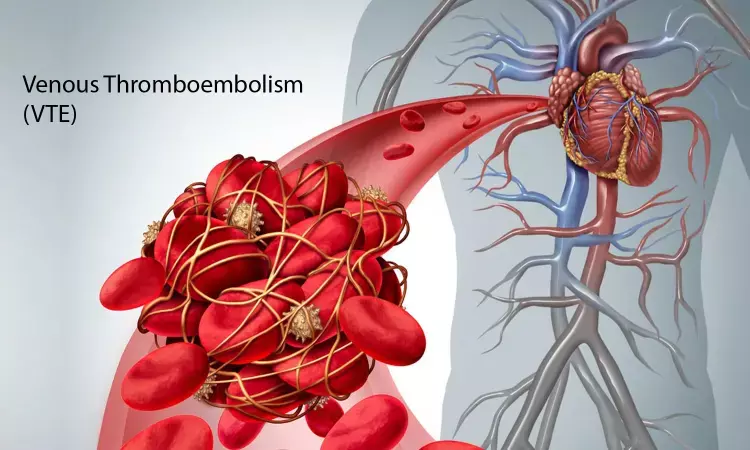- Home
- Medical news & Guidelines
- Anesthesiology
- Cardiology and CTVS
- Critical Care
- Dentistry
- Dermatology
- Diabetes and Endocrinology
- ENT
- Gastroenterology
- Medicine
- Nephrology
- Neurology
- Obstretics-Gynaecology
- Oncology
- Ophthalmology
- Orthopaedics
- Pediatrics-Neonatology
- Psychiatry
- Pulmonology
- Radiology
- Surgery
- Urology
- Laboratory Medicine
- Diet
- Nursing
- Paramedical
- Physiotherapy
- Health news
- Fact Check
- Bone Health Fact Check
- Brain Health Fact Check
- Cancer Related Fact Check
- Child Care Fact Check
- Dental and oral health fact check
- Diabetes and metabolic health fact check
- Diet and Nutrition Fact Check
- Eye and ENT Care Fact Check
- Fitness fact check
- Gut health fact check
- Heart health fact check
- Kidney health fact check
- Medical education fact check
- Men's health fact check
- Respiratory fact check
- Skin and hair care fact check
- Vaccine and Immunization fact check
- Women's health fact check
- AYUSH
- State News
- Andaman and Nicobar Islands
- Andhra Pradesh
- Arunachal Pradesh
- Assam
- Bihar
- Chandigarh
- Chattisgarh
- Dadra and Nagar Haveli
- Daman and Diu
- Delhi
- Goa
- Gujarat
- Haryana
- Himachal Pradesh
- Jammu & Kashmir
- Jharkhand
- Karnataka
- Kerala
- Ladakh
- Lakshadweep
- Madhya Pradesh
- Maharashtra
- Manipur
- Meghalaya
- Mizoram
- Nagaland
- Odisha
- Puducherry
- Punjab
- Rajasthan
- Sikkim
- Tamil Nadu
- Telangana
- Tripura
- Uttar Pradesh
- Uttrakhand
- West Bengal
- Medical Education
- Industry
Obesity during adolescence increases VTE risk in adult life

Researchers at University of Gothenburg have found that men with a history of obesity in their late teens are more at risk of venous thromboembolism in adult life. The risk rises successively and is highest in those who were severely obese in adolescence.The new study has been published in Journal of Internal Medicine.
The population of obese and severely obese young adults is increasing globally.It is therefore important to recognize the long‐term risks associated with adolescent obesity. Researchers conducted study to determine the association between body mass index (BMI) in young men at enlistment for military service and later risk of venous thromboembolism (VTE).
Venous thromboembolism (VTE) is one of our most common cardiovascular diseases. It's risk increases with advancing age and, overall, 5-10 percent of the population are affected at some time during their lives. The disease is potentially fatal, but its degree of severity varies.
The current study is based on data on 1,639,838 men who enlisted for military service in Sweden in the years 1969-2005. Their average age on enlistment was just over 18 years. These individuals were followed up using patient and cause-of-death registers.
During the follow-up period, with a median duration of 28 years, a blood clot in the leg or lung was registered among just over 1 percent (n=18,665) of the study participants. A clear association was found between body mass index (BMI) at the time of enlistment and subsequent thrombus risk.
A successive rise in VTE risk was also observed in the group in the middle and the upper part of the normal BMI range (20-25), compared with the lower part of the normal range (18.5-20).
The risk then continued to rise in the two higher BMI groups, those with obesity and severe obesity, to which more than 36,000 of the study participants belonged.
In the group with obesity (BMI 30-35), the relative risk was 2.93 compared with the reference group in the study -- over twice as high. For those with severe obesity, the corresponding relative risk was 4.95, i.e. a nearly fivefold risk for blood clots in the leg or lung during the follow-up period.
Katarina Glise Sandblad is a PhD student at Sahlgrenska Academy, University of Gothenburg, a resident physician specializing in internal medicine at Sahlgrenska University Hospital and the first author of the study.
"Up to now, the association between VTE and obesity has been studied mainly in populations where BMI is measured relatively late in life. By then, the study participants may have developed obesity-related diseases, such as certain forms of cancer, that also affect their thrombus risk. Consequently, there's a danger of underestimating the risk from obesity. As obesity and severe obesity become more prevalent among children and adolescents, it's increasingly important to study the long-term risks involved," Dr Glise Sandblad says.
Although the current study covers men only, the patterns and associations found are probably similar for women, in the research group's opinion. Heading the group is Annika Rosengren, Professor of Medicine at the University of Gothenburg. The group has previously conducted studies of obesity and outcomes other than VTE, such as heart attack, stroke, heart failure and cardiomyopathy, where similar patterns in both men and women have been observed.
For further reference log on to:
http://dx.doi.org/10.1111/joim.13044
Dr Kamal Kant Kohli-MBBS, DTCD- a chest specialist with more than 30 years of practice and a flair for writing clinical articles, Dr Kamal Kant Kohli joined Medical Dialogues as a Chief Editor of Medical News. Besides writing articles, as an editor, he proofreads and verifies all the medical content published on Medical Dialogues including those coming from journals, studies,medical conferences,guidelines etc. Email: drkohli@medicaldialogues.in. Contact no. 011-43720751


